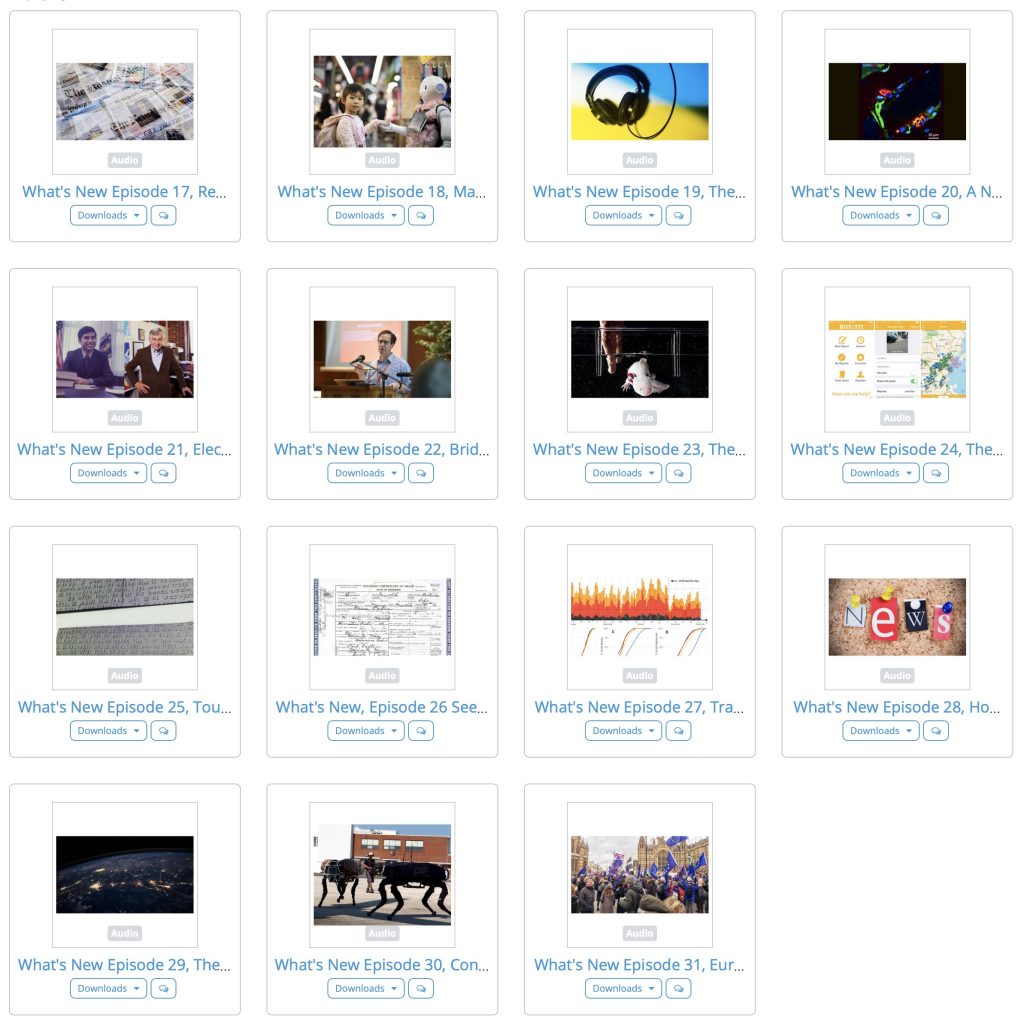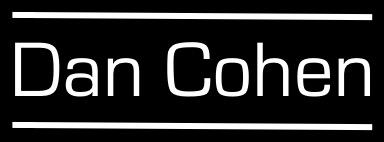With the end of the academic year at Northeastern University, the library wraps up our What’s New podcast, an interview series with researchers who help us understand, in plainspoken ways, some of the latest discoveries and ideas about our world. This year’s slate of podcasts, like last year’s, was extraordinarily diverse, ranging from the threat of autonomous killer robots to the wonders of tactile writing systems like Braille, and from the impact of streaming music on the recording industry to the disruption and meaning of Brexit. I’ve enjoyed producing and being the interviewer on these podcasts, and since I like to do my homework in addition to conversing with the guests live, I’ve learned an enormous amount from What’s New.

I hope you have too if you’re a subscriber to the podcast or just the occasional listener, and would love your feedback about what we can do better, and topics you would like to hear us cover in the future. One surprising and rewarding thing we’ve noticed about the podcast is how new subscribers are going back and listening to the show from Episode 1. Podcasts do seem to encourage binging, and the fact that we keep our podcasts to roughly 30 minutes means that you can easily go through both Seasons 1 and 2 during a relatively short timespan while commuting, walking your dog, or relaxing this summer.
The overall audience for What’s New has also gone up considerably over the last year. In the last 12 months we’ve had about 150,000 streams, and each episode now receives 5-10,000 listeners. These are not chart-topping numbers, but for a fairly serious educational podcast (with, I hope, intermittent humor) it’s good to find a decent-sized niche that continues to grow.
If you haven’t had a chance to listen yet, you can subscribe to What’s New on Apple Podcasts, Google Play, Stitcher, Overcast, or wherever you get your podcasts, or simply stream episodes from the What’s New website. Word of mouth has been the primary way new listeners have heard about the podcast, so if you like what we’re doing, please tell others or leave a review on iTunes, as that remains the starting point for most podcast listeners.
And as a jumping off point for new listeners or those who may have missed a few shows during the school year, here’s a summary of this year’s episodes:
Episode 17: Remaking the News – how consolidation in the news industry and the rise of the internet has changed professional journalism, with Dan Kennedy
Episode 18: Making Artificial Intelligence Fairer – exploring the biases endemic to AI, which come from its creators, with Tina Eliassi-Rad
Episode 19: The Shifting Landscape of Music – how the music industry moved from vinyl records to cassettes, CDs, downloads, and now streaming, and what this evolution has meant for musicians, with David Herlihy
Episode 20: A New Way to Scan the Human Body – pioneering the use of nanosensors within the body and its potential applications, with Heather Clark
Episode 21: Election Day Special: Michael Dukakis – on 2018’s Election Day, the three-term governor and presidential candidate spoke candidly about the state of politics
Episode 22: Bridging the Academic-Public Divide Through Podcasts – a recording of yours truly giving a keynote at the Sound Education conference at Harvard, which brought together hundreds of educational and academic podcasters and podcast listeners
Episode 23: The Regeneration of Body Parts – new research and techniques for stimulating the growth of limbs, eyes, and organs, with Anastasiya Yandulskaya, Brian Ruliffson, and Alex Lovely
Episode 24: The Urban Commons – how 311 systems, which allow citizens to provide feedback to municipalities, have changed our knowledge of cities and they ways residents and governments interact, with Dan O’Brien
Episode 25: Touch This Page – the history and future of tactile writing systems, and what they tell us about the act of reading, with Sari Altschuler
Episode 26: Seeking Justice for Hidden Deaths – between 1930 and 1970 there were thousands of racially motivated homicides in the U.S., and one project is attempting to document them all, with Margaret Burnham
Episode 27: Tracing the Spread of Fake News – looking carefully at the impact of untrustworthy online sources in the election of 2016, with David Lazer
Episode 28: How College Students Get the News – the surprising results of a large study of the news consumption habits of college students, with Alison Head and John Wihbey
Episode 29: The Web at 30 – celebrating the 30th anniversary of the founding of the World Wide Web with a discussion of how it has reshaped our world for better and worse, with Kyle Courtney
Episode 30: Controlling Killer Robots – how major advances in robotics and artificial intelligence have led to the dawn of deadly, independent machines, and how an international coalition is trying to prevent them from taking over warfare, with Denise Garcia
Episode 31: European Disunion – how Europe has regularly escaped the fate of dissolution, and what Brexit means in this longer history, with Mai’a Cross
Thanks for tuning in!
